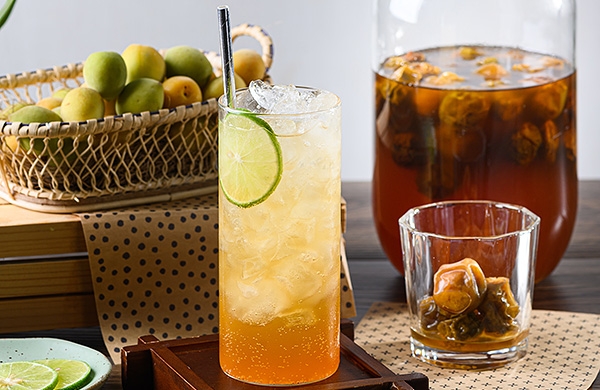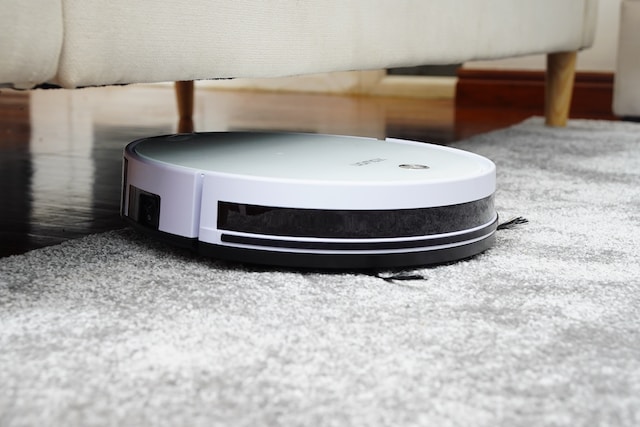Application Program Interface หรือที่เรียกว่า api เป็นกลไกชนิดหนึ่งซึ่งคำว่า Application นี้คือฟังก์ชันทุกซอฟต์แวร์ที่มีความชัดเจน Interface

การเลือกบริการขนส่งจากจีน พิจารณาจากอะไรการเลือกบริการขนส่งจากจีน พิจารณาจากอะไร
การขนส่งจากจีนเป็นบริการที่นิยมอย่างมากในปัจจุบันเพราะไม่ว่าใครอยากจะสั่งสินค้าจากจีนเข้ามาขายหรือใช้เอง เนื่องด้วยราคาที่ดีและคุณภาพที่สมเหตุสมผล

ประกันรถยนต์ชั้น 1 ที่ดีควรเป็นอย่างไร ?ประกันรถยนต์ชั้น 1 ที่ดีควรเป็นอย่างไร ?
การเลือกซื้อประกันรถยนต์ชั้น 1 ทั้งที สิ่งที่จำเป็นและต้องคำนึงถึงไม่ใช่แค่เรื่องราคาและความคุ้มครองของทางผู้ให้บริการอย่างเดียว แต่ยังมีปัจจัยอื่นๆอีกมากมาย แต่การที่จะรู้ได้ก็ควรได้รู้ก่อนว่าประกันรถยนต์ชั้น 1 ที่ดีและสมควรจะเป็นควรมีลักษณะอย่างไรบ้าง โดยสรุปแล้ว ประกันรถยนต์ชั้น 1 ที่ดีควรให้ความคุ้มครองที่ครอบคลุม ราคาที่แข่งขันได้ การบริการลูกค้าที่ดีเยี่ยม และการดำเนินการเรียกร้องที่มีประสิทธิภาพ ควรจัดหาโดยบริษัทที่มีความมั่นคงทางการเงินและมีชื่อเสียงด้วย พิจารณาความต้องการและความพึงพอใจส่วนบุคคลของคุณเมื่อเลือกกรมธรรม์ประกันภัยรถยนต์ และอย่าลังเลที่จะเปรียบเทียบราคาจากผู้ให้บริการหลายรายเพื่อค้นหาแบบที่ดีที่สุด โดยการจัดลำดับความสำคัญของคุณสมบัติเหล่านี้ คุณจะมั่นใจได้ว่าคุณได้รับความคุ้มครองที่เหมาะสมในการปกป้องตัวคุณและรถของคุณในทุกสถานการณ์

ประโยชน์ของบ๊วยที่รู้แล้วต้องรักบ๊วยแน่นอนประโยชน์ของบ๊วยที่รู้แล้วต้องรักบ๊วยแน่นอน
บ๊วยสด เป็นอีกหนึ่ผลไม้ที่ได้รับความนิยมมากๆ ในบ้านเรา ซึ่งบ๊วยสดนั้นมีแหล่งกำเนิดในประเทศจีน ต่อมาภายหลังได้แพร่กระจายไปหลายประเทศจนทำให้บ๊วยเป็นที่นิยมอย่างแพร่หลาย มีรสชาติค่อนข้างเปรี้ยวและฝาด นิยมนำไปประกอบอาหาร เช่น ปลานึ่งบ๊วย ขาหมูต้มบ๊วย นำไปทำเป็นเครื่องดื่ม เช่น น้ำบ๊วย น้ำบ๊วยโซดา หรือนำไปอบแห้งและแปรรูปหลากหลายแบบ เช่น บ๊วยแห้ง บ๊วยเค็ม บ๊วยดอง บ๊วยอัดเม็ด วันนี้เรามาดูประโยชน์ขอบบ๊วยกันเลยดีกว่า เต็มไปด้วยแร่ธาตุที่จำเป็นต่อร่างกาย บ๊วย 1 ผลมีแคลเซียมและธาตุเหล็กสูงกว่าแอปเปิ้ล 4 และ 6 เท่าตามลำดับ นอกจากนี้บ๊วยยังอุดมไปด้วยแมกนีเซียมและสังกะสีซึ่งเป็นแร่ธาตุที่จำเป็นต่อการมีสุขภาพที่ดี

รวมหลากข้อดีของบ้านโครงการใหม่อยุธยารวมหลากข้อดีของบ้านโครงการใหม่อยุธยา
ก่อนที่เราจะไปดูถึงข้อดีของบ้านโครงการใหม่อยุธยา เราไปทบทววนความรู้กันก่อนดีกว่าว่าบ้านเดี่ยวและบ้านแฝดนั้นเป็นอย่างไร ซึ่งบ้านเดี่ยว จะเป็นบ้านที่ไม่มีผนังส่วนใดติดกับบ้านหลังอื่นเลย หรือจะมีพื้นที่ว่างรอบตัวบ้าน โดยปกติมักจะล้อมรัวรอบบ้าน มักมีพื้นที่มากกว่า

ปัจจัยสำคัญอะไรบ้าง ที่ทำให้เราต้องมีการติดตั้งชิลเลอร์ภายในอาคารปัจจัยสำคัญอะไรบ้าง ที่ทำให้เราต้องมีการติดตั้งชิลเลอร์ภายในอาคาร
ในปัจจุบันชิลเลอร์และถูกพัฒนาด้วยนวัตกรรมและเทคโนโลยีสมัยใหม่สามารถทำงานเพื่อควบคุม และปรับลดความร้อนได้เป็นอย่างดี โดยทั่วไปแล้วชิลเลอร์เรามักจะพบเห็นการใช้งานติดตั้งในระบบอุตสาหกรรมและห้างสรรพสินค้าขนาดใหญ่ เป็นต้น แต่ชิลเลอร์ได้ถูกพัฒนาและออกแบบให้สามารถใช้งานได้ให้เหมาะสมกับลักษณะการทำความเย็น เพื่อประสิทธิภาพในการทำงานและช่วยในการประหยัดพลังงานนั่นเอง ปัจจัยสำคัญที่ต้องมีการติดตั้งเครื่องชิลเลอร์ การออกแบบและติดตั้งเครื่องชิลเลอร์ภายในอาคาร สามารถอ้างอิงจากความต้องการลักษณะการใช้งานเพื่อแก้ไขปัญหาการควบคุมสภาพอากาศและอุณหภูมิภายในอาคารให้เป็นไปตามมาตรฐานเกี่ยวกับอุตสาหกรรมบางชนิดด้วยเช่นกัน ในระบบอุตสาหกรรมที่มีพนักงานในอาคารเป็นจำนวนมาก ด้วยร่างกายของเรามีอุณหภูมิเฉลี่ยอยู่ที่35.4 ถึง 37 องศาเซลเซียส ส่งผลให้ภายในอาคารมีความร้อนสะสมจากบุคลากรหรือพนักงานด้วยเช่นกัน ชิลเลอร์มีความสำคัญในการเพิ่มประสิทธิภาพการทำงานของเครื่องปรับอากาศได้เป็นอย่างดี ด้วยเหตุผลนี้จึงมีความจำเป็นในการติดตั้งชิลเลอร์ หรือ Air Chiller เพื่อควบคุมอุณหภูมิภายในอาคาร เป็นไปตามข้อกำหนดหรือมาตรฐานในระบบอุตสาหกรรมเช่นอุตสาหกรรมอิเล็กทรอนิกส์,อุตสาหกรรมอาหาร,และอุตสาหกรรมยาและเวชภัณฑ์เป็นต้น ทั้งหมดนี้เป็นปัจจัยสำคัญที่ส่งผลต่ออุณหภูมิภายในอาคารจำเป็นต้องมีการติดตั้งชิลเลอร์เพื่อควบคุมอุณหภูมิและทำความเย็นภายในอาคารให้ได้อย่างสม่ำเสมอ โดยเฉพาะการรับมือกับปัจจัยทั้ง 4 ด้าน เช่น ความร้อนเกิดจากการสะสมจากตัวบุคคล ความร้อนที่เกิดจากระบบเติมอากาศ ความร้อนที่เกิดจากการใช้งานของเครื่องจักรและอุปกรณ์ไฟฟ้าและสภาพอากาศเปลี่ยนแปลงไปตามฤดูกาล

นายทุนรับขายฝากที่ดิน มีหน้าที่อะไร มาดูกันนายทุนรับขายฝากที่ดิน มีหน้าที่อะไร มาดูกัน
การขายฝากเป็นรูปแบบธุรกรรมอย่างหนึ่งที่ประกอบด้วยผู้ขายฝากและผู้รับขายฝาก ซึ่งมีทั้งการขายฝากสินทรัพย์ในรูปแบบสังหาริมทรัพย์และอสังหาริมทรัพย์ ในที่นี้จะเป็นอสังหาริมทรัพย์หรือก็คือการขายฝากที่ดินให้แก่นายทุนรับขายฝากที่ดิน บทความนี้จะมากล่าวถึงหน้าที่ของนายทุนให้ได้รู้จัก

สร้างบ้าน เริ่มต้นอย่างไรดี พร้อมชี้แนะมือใหม่ก่อนคิดจะเริ่มต้นสร้างบ้าน ต้องรู้อะไรบ้างสร้างบ้าน เริ่มต้นอย่างไรดี พร้อมชี้แนะมือใหม่ก่อนคิดจะเริ่มต้นสร้างบ้าน ต้องรู้อะไรบ้าง
หากท่านต้องการที่อยากจะมีบ้านสักหลัง ไม่ว่าจะเป็นการสร้างบ้านเอง หรือซื้อบ้าน เจ้าของบ้านมือใหม่หลายคนก็คงจะมีความกังวลใจอยู่ไม่น้อย ว่าจะต้องเริ่มต้นอย่างไรดี ทางเราก็ไม่พลาดที่จะมาชี้แนะมือใหม่ก่อนคิดจะเริ่มต้นสร้างบ้าน จะต้องทราบอะไรบ้าง ตามไปศึกษารายละเอียดข้อมูลกันเลย

รวมเทคนิคเคล็ดไม่ลับกับการทาสีบ้านให้สวยสะดุดตาไม่เหมือนใครรวมเทคนิคเคล็ดไม่ลับกับการทาสีบ้านให้สวยสะดุดตาไม่เหมือนใคร
บทความนี้เราได้รวบรวมเทคนิคเคล็ดไม่ลับกับการทาสีบ้านให้สวยสะดุดตาไม่เหมือนใครมาฝากเพื่อนๆ กัน เผื่อใครอยากลองทาสีบ้านเอง ก็จัดได้เลยง่ายๆ ซึ่งเทคนิคเคล็ดไม่ลับกับการทาสีบ้านให้สวยสะดุดตาไม่เหมือนใครที่เรานำมาฝากกันในบทความนี้จะมีอะไรที่น่าสนใจบ้างนั้น

เครื่องดูดฝุ่นไร้สาย เหตุผลที่ควรเลือกซื้อติดบ้านไว้สักเครื่องเครื่องดูดฝุ่นไร้สาย เหตุผลที่ควรเลือกซื้อติดบ้านไว้สักเครื่อง
เชื่อว่าหลายคนคงเคยได้ยินหรือเคยเห็นเครื่องดูดฝุ่นไร้สาย ผ่านหูผ่านตามาบ้างพอสมควร นับเป็นหนึ่งในนวัตกรรมที่ช่วยให้การทำความสะอาดบ้านของคุณเป็นไปอย่างราบรื่น และไม่เปลืองแรงมากจนเกินไป แต่ถ้าหากคุณยังคงสงสัยว่าทำไมถึงต้องซื้อติดบ้านไว้สักเครื่อง เราได้รวบรวม “เหตุผล” ที่น่าสนใจ มาให้คุณได้นำไปประกอบการตัดสินใจเรียบร้อยแล้ว ไปติดตามพร้อม ๆ กับเราได้เลย เครื่องดูดฝุ่นไร้สาย กับ “ประโยชน์” ที่คุณคาดไม่ถึง สำหรับคนที่กำลังค้นหาข้อมูลในเรื่องประโยชน์ของเครื่องดูดฝุ่นไร้สาย เราได้รวบรวมมาให้คุณทั้งหมด 3 ข้อหลัก ๆ โดยมีรายละเอียดดังต่อไปนี้ 1. เพลิดเพลินไปกับการทำความสะอาดบ้าน ต้องอธิบายก่อนว่าเครื่องดูดฝุ่นไร้สายเป็นการใช้งานด้วยแบตเตอรี่ ไม่ต้องต่อสายไฟเพื่อใช้งานแต่อย่างใด แถมแบตเตอรี่ยังกักเก็บไฟได้เยอะ ไม่ต้องกังวลว่าแบตจะหมดก่อนดูดฝุ่นเสร็จ แถมในส่วนของระยะเวลาในการชาร์จไฟก็ไม่นาน ใช้เวลาประมาณ

